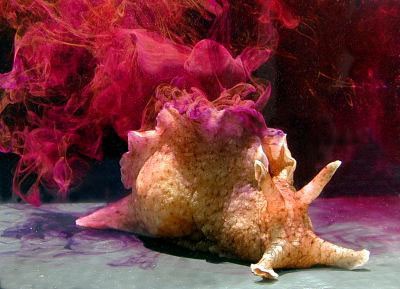Edgar Rice Burroughs, the American writer who authored “Tarzan of the Apes,” once said humans are creatures of habit. Neuroscience, the study of the brain, can confirm this adage.
With awareness and practice, habits can be shaped to increase the productivity of day-to-day life. So, before you begin your new workout regiment, piano practice or finals study routine, streamline your goal by taking your brain’s habit loop into account.
A great deal of knowledge about habits comes from experiments performed on a sea slug known as Aplysia californica. This animal provides a straightforward way to understand habit due to its simple behaviors.
The slug will typically recoil after being touched on its gill. It will relax once it’s realized the touch is not a threat.
The slug, however, can apply an electric shock and will recoil after being touched repeatedly.
While humans and sea slugs are quite different from each other, the neuronal circuitry that maintains the habits of these organisms is very similar.
As a defense mechanism, A. californica has a circuit—a set of neurons connected to each other in the brain—to immediately respond to what it senses as danger. The connections in the circuit lose their strength as the threat of being injured decreases after the organism is touched without pain.
Think of loosening grip on a baseball bat. As the grip gets looser, the ball will be hit with less force. When the connections in a circuit decrease in power, the response will decrease and eventually disappear.
The sea slug’s decision to recoil or relax is instinctive. It comes naturally based on the experience it has gained. While the type of people we enjoy being around or the foods we favor seem to stem from more complex behavioral traits, they are almost one in the same as the sea slug’s recoil reflex.
Say you call your best friend and they don’t pick up. This is fine for one day. After a week of zero responses, you may begin to harbor feelings of sadness. The friend becomes the shock and it will take time to see them the same way because of your fidgety gill.
“The way we use our minds is a lot like exercising,” said Alan Nighorn, professor and head of the UA neuroscience department. “So you wouldn’t want to just jump up and decide you were going to try out for the Olympics without ever training.”
Like a muscle, your brain can be trained to adapt to specific environments and situations, reducing the strain after every session. Studying may be difficult at first, but after studying every morning for a week, the difficulty will wear down a bit. After studying every day for a month, it will become strange to think of not studying.
Our habits define us. We take pride in the songs we listen to every day, the talents we’ve acquired after gaining a knack and the friends we’ve made after spending parts of our lifetime with them. But, as our experiences change, our habits will adapt with them.
“We’re always plastic. We’re always changing,” Nighorn said. “You’re always a moving average of your previous experiences.”
Follow Stephan Dong on Twitter.









